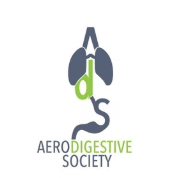An aerodigestive team is a group of specialists from different medical fields who work together to care for children with complex airway and digestive conditions. Each team member has a unique role, and together they cover all aspects of breathing, feeding, and related health needs. Here are the key professionals typically involved in an aerodigestive program and how they contribute to your child’s care:
• Otolaryngologist (ENT – Ear, Nose, and Throat specialist): The ENT doctor focuses on the upper airway (nose, throat, voice box) and voice. They evaluate structural issues like a floppy airway (laryngomalacia), vocal cord function, airway narrowing (stenosis), or chronic ear/nose/throat problems that might affect breathing. If surgical interventions (such as airway surgery or laryngeal cleft repair) are needed, the ENT surgeon often performs those. They work closely with other team members to ensure that any airway interventions are timed appropriately with feeding or lung treatments.
• Pulmonologist (Lung specialist): The pulmonologist manages the lower airway and lungs. They address issues like chronic cough, wheezing, recurrent pneumonias, or breathing difficulties, including those during sleep (sleep apnea). In the aerodigestive clinic, the pulmonologist might perform bronchoscopy (looking into the lungs with a scope) and will manage pulmonary treatments (e.g., inhaled medications, airway clearance techniques). They ensure that the child’s respiratory status is optimized, especially if a procedure under anesthesia is planned.
• Gastroenterologist (Digestive specialist): The gastroenterologist cares for the esophagus, stomach, and digestion-related aspects. They assess problems like severe gastroesophageal reflux (GERD), swallowing difficulties, or feeding intolerance. In the team, the GI doctor might perform an upper endoscopy to look at the esophagus and stomach for inflammation or blockages. They also manage nutrition absorption issues and coordinate care for problems like eosinophilic esophagitis or constipation that can affect overall health. Their goal is to ensure that the digestive tract is not contributing to airway problems (for example, treating reflux so acid doesn’t irritate the airway).
• Nurse Coordinator: The nurse coordinator is the organizational hub of the team. This person communicates with families before and after visits, helping to schedule all the necessary appointments and tests. During the evaluation, the coordinator ensures things run smoothly and that families have the education they need (for example, instructions for a sleep study or preparation for a procedure). After the team forms a plan, the nurse coordinator helps the family carry it out – arranging home care needs, prescriptions, or additional referrals. They are often the first point of contact if you have questions between visits.
• Speech-Language Pathologist (SLP) or Feeding Therapist: This specialist evaluates and treats swallowing and feeding issues. They often perform or assist with swallow studies to see if food or liquid is going down the right way. If a child aspirates (inhales food/liquid into the airway) or has difficulty coordinating chewing and swallowing, the SLP works on exercises and strategies to improve safety. They also help with oral aversion (children unwilling to eat) and can recommend feeding techniques or modifications in food texture. Their input is crucial for creating a feeding plan that is safe and helps the child grow.
• Dietitian/Nutritionist: Good nutrition is vital for children’s healing and growth, especially if they have feeding difficulties. A dietitian on the team evaluates your child’s dietary intake, growth charts, and nutritional status. They make recommendations on calorie needs, special diets (for instance, dairy-free if milk aspiration is an issue, or thickened liquids if thin liquids cause choking), and supplementation. If your child uses a feeding tube, the dietitian will tailor the tube feeding formula and schedule. The dietitian works hand-in-hand with the medical team to ensure that any nutritional deficiencies are addressed and that the treatment plan supports healthy weight gain and development.
• Social Worker/Psychologist: Caring for a child with complex medical needs can be challenging for the whole family. Social workers in the program provide support by connecting families with resources such as support groups, home healthcare services, or financial assistance programs. They can assist with logistics like lodging if a family travels for care or counseling if coping with chronic illness is stressful. Some programs also have psychologists who help children with behavioral aspects of feeding (for example, anxiety around eating) or help siblings and parents manage the emotional side of frequent medical care.
• Other Specialists as Needed: Depending on each child’s unique situation, the aerodigestive team can involve additional experts. This might include a Pediatric Surgeon (for surgical procedures like fundoplication for reflux), an Allergist (if allergies or immunologic issues contribute to airway problems), or a Sleep Medicine doctor (for complex sleep-related breathing disorders). The core team will bring in these specialists when necessary and ensure they are part of the collaborative plan.
All these professionals work together closely. They hold regular team meetings (often right after clinic or during a weekly conference) to discuss each patient’s progress and adjust the care plan. The real strength of the aerodigestive team is in this collaboration: instead of each specialist giving separate recommendations, they merge their expertise to form a unified approach that covers all facets of the child’s health.
Next: Conditions We Treat
